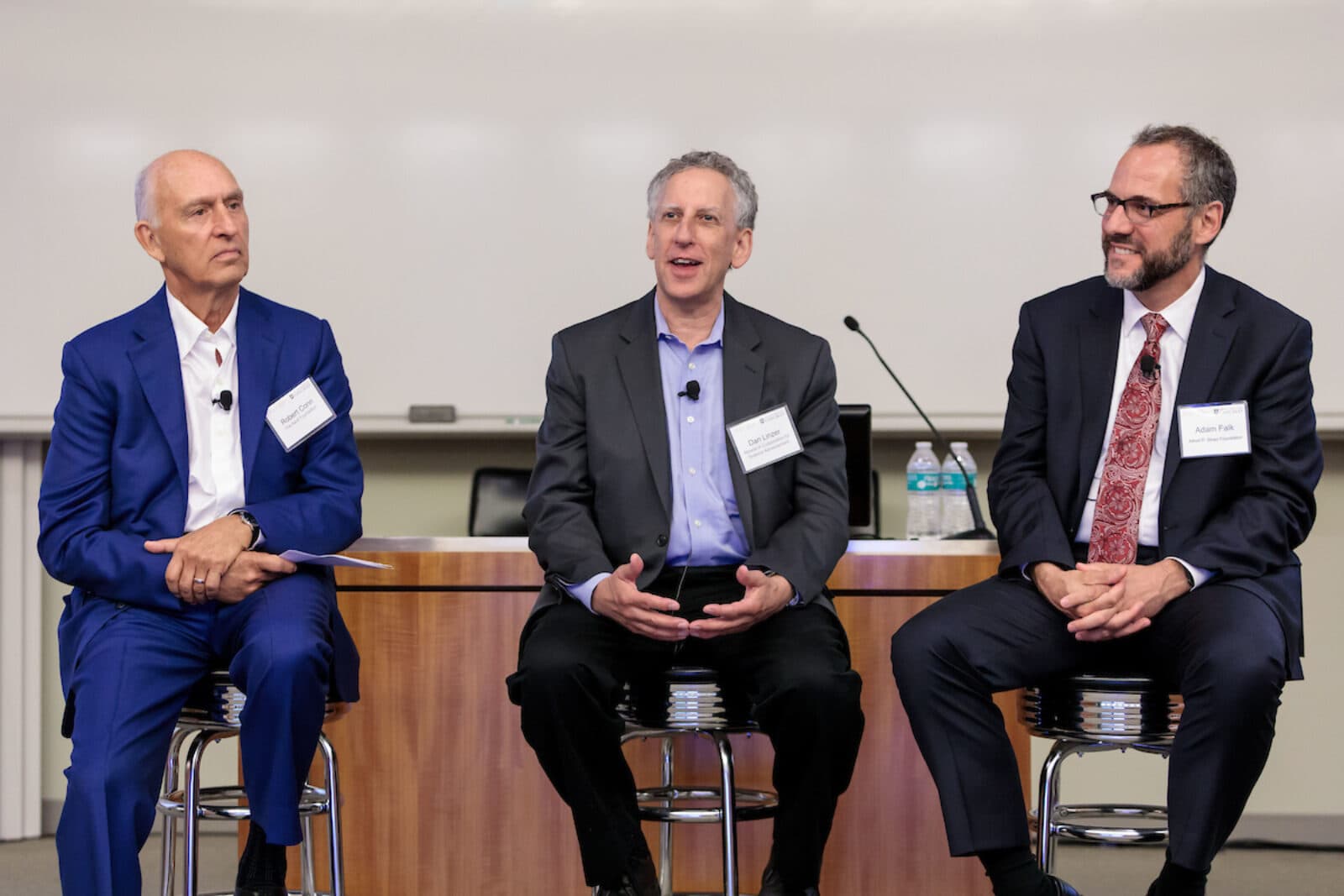Funding Basic Scientific Research


Leaders from three major science foundations shared their views on the role of philanthropy in funding basic science during the Science Philanthropy Alliance summer 2018 meeting. The Kavli Foundation President, Bob Conn, along Sloan Foundation president, Adam Falk, and Research Corporation for Science Advancement president and CEO, Dan Linzer, also discussed how their foundations are supporting scientific research.
Three key themes emerged from their conversation:
- Philanthropy and government funding of science
- Funding early-career scientists
- Diversity in scientific research
On private philanthropy versus federal funding, all agreed it is not one or the other as both play a critical role in funding scientific research. The Kavli Foundation President, Bob Conn, pointed out that while the scale of government funding is much larger than that of private philanthropy, “philanthropy can do things that the government can’t or won’t.” An example of this is taking very early risks with certain kinds of research, at a stage where it likely doesn’t fit specific research parameters required by government.
Both the Sloan Foundation and RCSA discussed the importance of funding early-career scientists. RCSA is particularly interested in funding areas of intersection between scientific disciplines where it can bring early-career faculty together. The Kavli Foundation takes a different approach – funding institutes rather than individuals. “We bet on institutions that focus on basic science,” said Conn. “Institutions are motivated to stay relevant and to keep a field alive. Our funding gives them the flexibility to fill the gaps, and to complement government funding.” The Kavli Foundation has 20 institutes around the world focused on basic research in the fields of theoretical physics, astrophysics, nanoscience and neuroscience.
Diversity in scientific research was also a central point of discussion. All three foundations are intentionally looking at how to make a difference. The Sloan Foundation President, Adam Falk, remarking on its programs said that an “area of attention will be diversity in scientific research and encouraging more women and underrepresented minorities to enter and stay in science.” The Sloan Foundation also promotes diversity in science through its support of publicly-visible projects such as the book Hidden Figures. Bob Conn echoed the importance of public education and engagement with science, as well as diversity in science, pointing to the recent announcement of the 2018 Kavli Prizes Laureates in which four of the seven laureates were women.
More from the Science Philanthropy Alliance blog post.